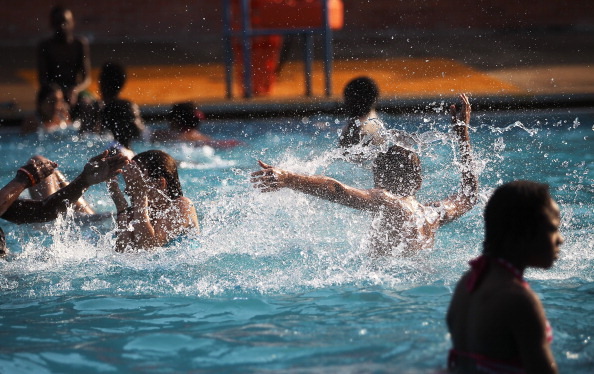
The next time that you decide to take a dip in a swimming pool, whether it's yours or public, do yourself a favor. Don't pee.
For the longest time, any irritation a person develops during or after swimming in the pool is often blamed on chlorine. That's completely understandable, however. We've grown up to believe this chemical is strong enough our body can develop adverse reaction to it. However, based on the new studies, chlorine isn't the culprit.
During the Healthy Swimming Program the Centers for Disease Control and Prevention (CDC) comes up with every year, they discovered that it's actually urine that leads to these types of problems.
But how does this happen? Chlorine doesn't affect your body in any way. However, urine can get mixed up in the chlorine, causing a chemical reaction. Once chlorinated water gets into the eyes, for example, the eyes may then become redder than usual.
But that's not the only issue with peeing in chlorinated water. If you end up coughing after a swim, there's a good chance that the same irritant is causing it, which also means you have ingested not only chlorine but also urine.
Further, as urine is broken down into its major components such as uric acid and urea, it can cause damage to other organs of the cardiovascular and even the central nervous system.
CDC, which has teamed up with National Swimming Pool Foundation and Water Quality and the Health Council, also discourages people who are suffering from diarrhea from ever taking a dip. It's not so much as feces may end up contaminating the water. A person with diarrhea harbors germs in many different parts of the body, which may end up in the pool. In fact, the germs don't have to come from any fecal matter at all.
The team recommends swimmers to be more proactive such as showering before and after taking a swim, as well as not swallowing water.
